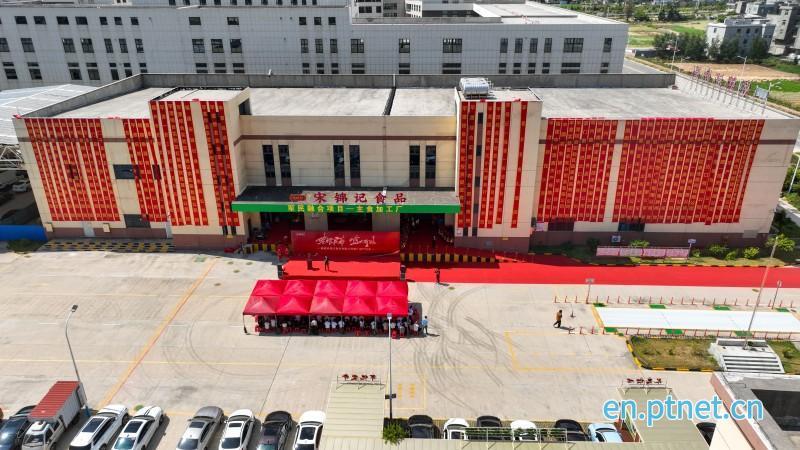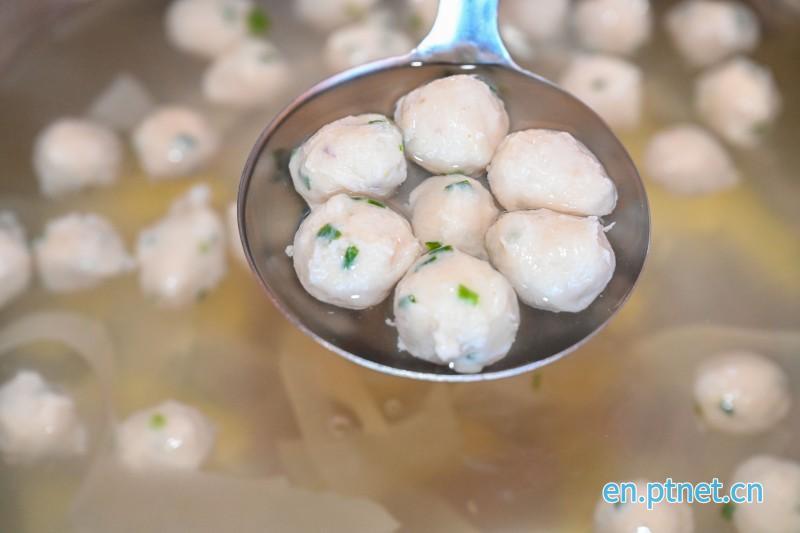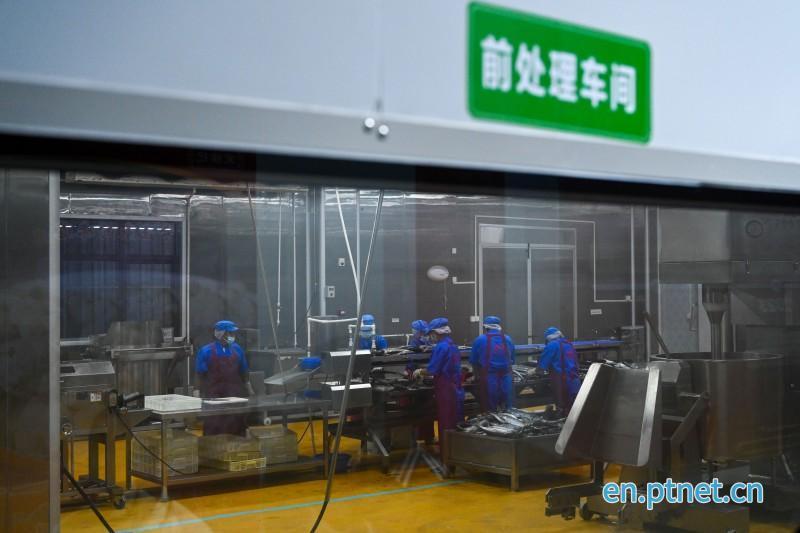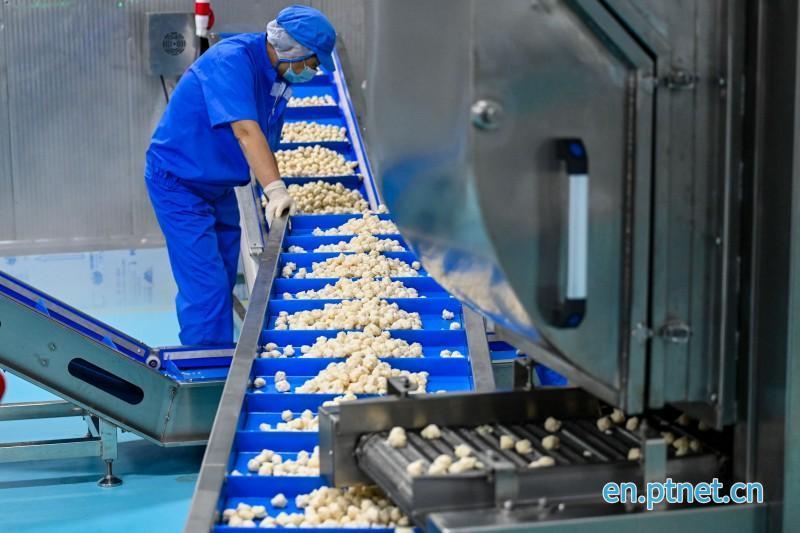Century-old fishball brand in Pingtan embraces modernization to expand global reach
en.ptnet.cn | Updated:2025-11-04 | Lin Kongbo, StephanieNestled off China's southeastern coast, Pingtan is renowned as a gateway for maritime trade and a hub of traditional seafood craftsmanship. As autumn breezes swept through the region, a visit to the newly launched Song Jin Ji Marine Technology Food Processing Park revealed how one local culinary legacy is blending age-old traditions with modern innovation to meet growin global demand.

Covering approximately 2,600 square meters, the park–a new production base for Pingtan's Laosong Food Co., Ltd. – officially opened earlier this year. Equipped with pre-processing workshops, forming facilities, and large cold storage units, the site now produces over 1,000 tons of surimi products – items made from a seasoned fish paste – annually, including the brand's signature mackerel fishballs.

"Try this – it's just out of the cooker, so fresh!" Song Mei, the company's general manager and third-generation inheritor of "Song Jin Ji Ancient Method Fishballs," greeted visitors in the factory's reception area, offering a bowl of steaming hot fishballs. A single bite revealed a firm, chewy texture and rich seafood aroma, hallmarks of the brand's century-long reputation.
Founded in 1916, when Song Mei's grandfather sold hand-made mackerel fishballs on local streets, Song Jin Ji has grown into a household name in Pingtan. Today, its products are exported to Southeast Asia and Africa, generating annual revenue of over 10 million yuan. Yet, facing fierce competition in the modern market, Song Mei recognized the need to modernize while preserving the brand's traditional flavors.

The solution lies in the factory's state-of-the-art production lines. "We source the freshest ingredients from local docks and nearby cities," Song Mei explained, leading a tour of the production area. "Our workers start as early as 2 or 3 a.m. each day, and the first batches are mainly supplied to the local market."

After donning work uniforms, hairnets, and undergoing repeated hand disinfection, visitors enter the workshop, where workers hustle alongside high-speed equipment like air coolers. From a whole mackerel to finished surimi products, the process involves over ten steps – but thanks to semi-automated lines, the transformation takes less than an hour.
The forming stage is critical to the fishballs' shape and texture. In the forming workshop, worker Shi Yunfang demonstrated her skill: she swiftly scooped a fist-sized ball of mackerel paste, twisted her wrist, and fed it into the forming machine. Within seconds, round, uniform fishballs rolled out into boiling equipment. "The key is to be fast, accurate, and decisive," Shi said with a smile.
Through the steam, fishballs could be seen travlling along a conveyor belt as hot water sprayed down from above – a step that tightens the soft balls and enhances their elasticity. This efficiency stands in contrast to the brand's early days, when all fishballs were hand-made. While traditional methods preserved authentic flavors, they limited production capacity and hindered market expansion.
Song Jin Ji relocated to the new park last year and introduced two customized production lines. These lines translate the hand-made expertise into standardized data, all while adhering to the family's long-standing principle: "more meat, less starch."
"For classic products like mackerel fishballs and stuffed fishballs, we designed differentiated production processes," Song Mei said. "Surprisingly, the finished products taste just as good as the hand-made ones."
Preserving freshness is another priority. Inside the spiral freezer, a deep chill greets visitors as freshly cooked fishballs are loaded in batches. "Here, the core temperature of the fishballs drops from room temperature to minus 18 degrees Celsius in less than 30 minutes, significantly extending their shelf life," Song Mei explained.
This efficient production model has boosted output: the factory now produces 10 tons of fishballs per 8-hour shift. As Song Jin Ji looks to the future, it plans to develop younger-oriented products like fish sausages, aiming to introduce Pingtan's century-old delicacy to more tables around the world.

 Fujian Public Security Registration Code: 35012802000271
Fujian Public Security Registration Code: 35012802000271